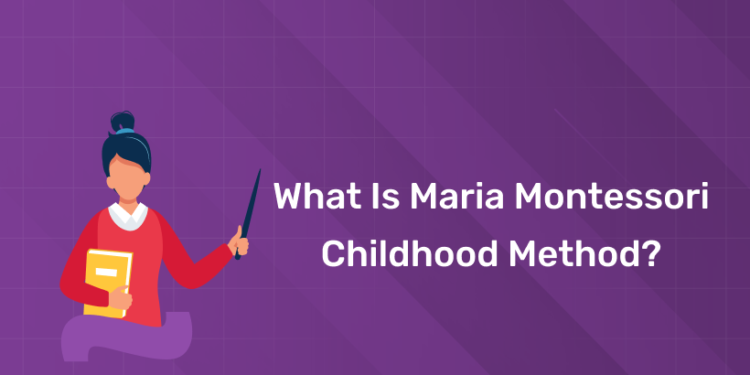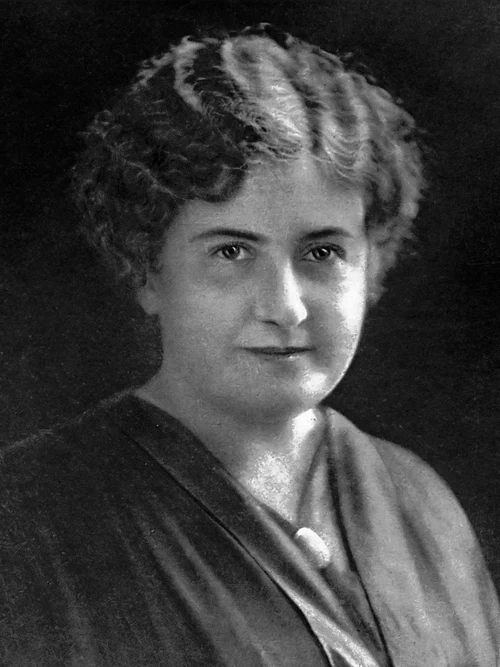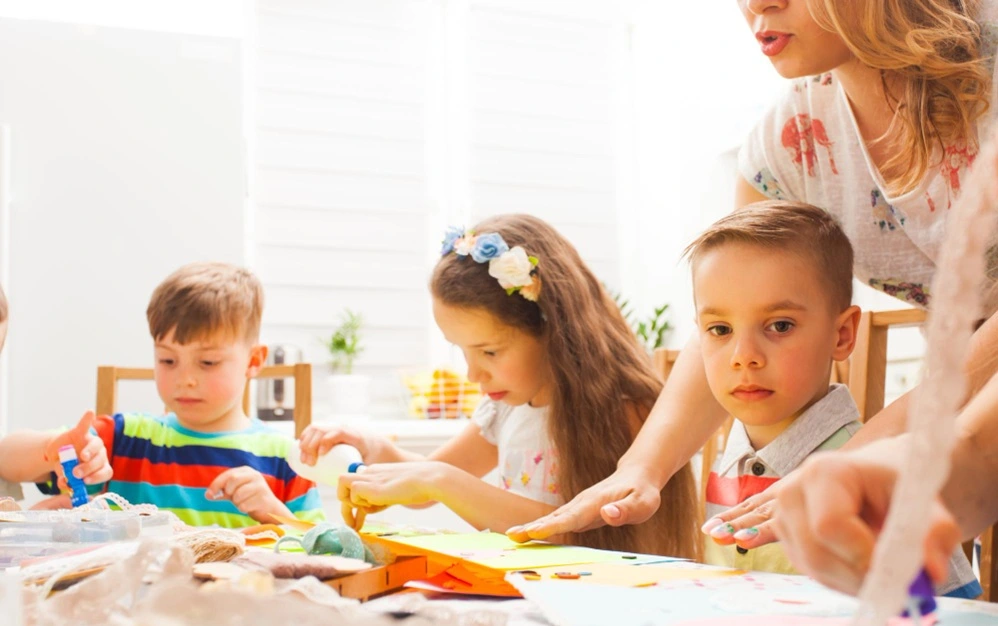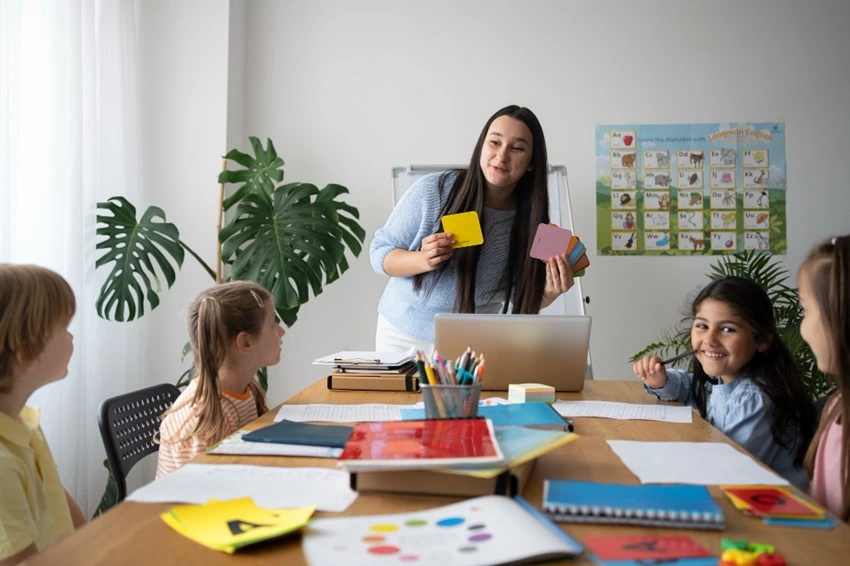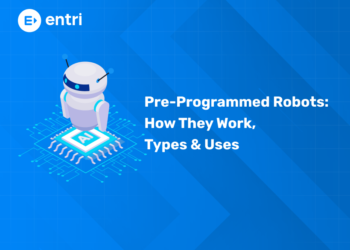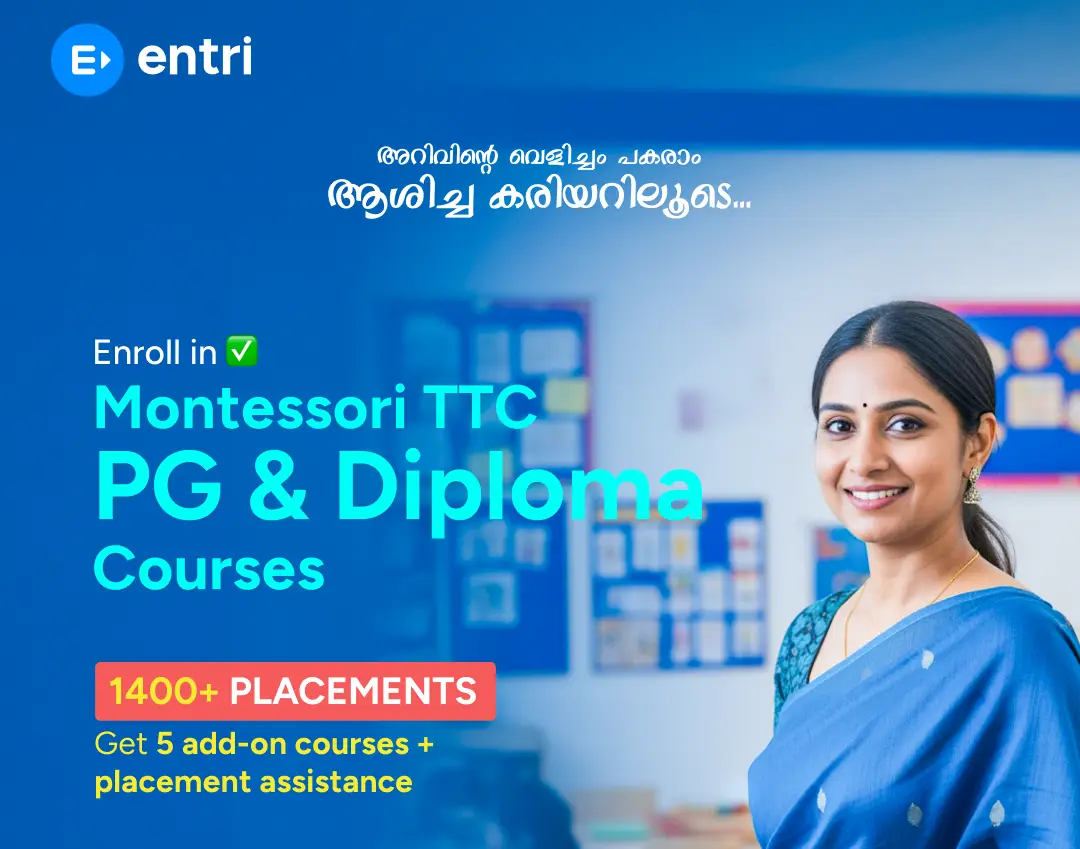Table of Contents
Teaching is not merely transmitting knowledge: “it is the magic of nurturing a child’s inquisitiveness and imagination and critical thinking.” Arguably, the most revolutionary development in all of history is Maria Montessori’s educational methodology and its effect on childhood development. Established by Italian physician and educator Dr. Maria Montessori, this approach emphasizes a child-centered form of education that fosters active learning by allowing children to pursue their own interests in a lifetime pursuit of learning.
To attempt to answer this question, we will get into the specifics of the Montessori method; its philosophy, history, benefits, practice, and relevance today. If you are a parent or teacher, or a future teacher, the learning of this technique will transform your ideas of childhood education.
Key Takeaways:
- The Montessori method is a “natural” and developmentally-appropriate philosophy of education that encourages parent involvement, fosters independence and curiosity, and addresses the whole child.
- It emphasizes learning by experience and doing exploratory activity, and guiding rather than recalling.
- She has designed her classroom in a way that encourages curiosity, independence, and collaborative learning.
- Montessori education promotes intellectual, emotional, social, and physical development. It can be applied in any situation, whether in homeschools, preschools, or regular classrooms.
Unlock your passion for education and shape young minds as a Montessori teacher!
The mind behind the method: Dr. Maria Montessori
A Pioneer Before Her Time
Dr. Maria Montessori (1870-1952) was a remarkable woman who bucked convention and became one of Italy’s first female doctors. Her foray into education didn’t start in a classroom, but rather in a doctor’s office, as she worked with developmentally disabled children. Through astute scientific observation, she found that these children had incredible potential to learn, if given the right materials and environments.
Key Milestones in Montessori’s Journey
1896: Became one of Italy’s first female doctors
1900-1907: Did pioneering work with special needs kids
1907: Opened the original Casa dei Bambini (“Children’s House”) in Rome
1909: Published “The Montessori Method”
1912: Brought the method to the US
1929: Established AMI
Dr. Montessori’s medical training had deeply informed her pedagogy. She used scientific observation to document children’s innate learning patterns, resulting in groundbreaking discoveries about child development and learning.
Foundations of Montessori Method
1: What is the primary focus of the first plane of development in the Montessori method?
At its essence, Montessori honors the child as a competent, curious, self-directed learner. It encourages a self-directed education that nurtures a passion for life-long learning. The Five Fundamental Montessori Principles are:
Respect for the Child
Montessori education is founded on profound respect for every child’s individuality, potential, and decisions. Instead of indoctrinating, teachers notice and facilitate, letting children blaze their own trails and build confidence through autonomy.
The Absorbent Mind
Dr. Montessori recognized early childhood (birth to approximately six years) as a stage when children acquire knowledge from their surroundings easily and unintentionally. This ‘absorbent mind’ enables toddlers to pick up language, culture, and motor skills from mere exposure at a rapid pace.
Sensitive Periods
Kids move through certain windows where they’re particularly drawn to and able to learn things like language, order, movement, or socializing. To recognize and support these ‘sensitive periods’ is to seize children’s indomitable readiness to learn.
The Prepared Environment
That classroom/learning space is well thought out and will encourage independence and exploration. There are materials, there is order, there is purpose, adventure, and rigor in a just-right atmosphere of freedom and structure.
Self-Education
Montessori thought children teach themselves by intentional engagement with activity. With minimal interference, kids correct mistakes, set their own challenges, and progress at their own speed, fostering a sense of ownership and intrinsic motivation.
Mixed Age Classrooms
Montessori classrooms tend to be multi-aged. Older kids are mentors, encouraging leadership and empathy, and teamwork.
Get Certified & Start Your Montessori Career
Montessori Teacher Training Course by Entri App: Gain expert skills, earn certification, and kickstart your teaching career.
Join Now!The Montessori Method – What Actually Happens
The function of the Montessori Teachers
The Montessori teacher is not an instructor, but a guide and observer. Their primary responsibilities include:
- Something I’ve always believed to be essential – preparing and holding an engaging learning environment.
- Watching every child and finding out what their needs and interests are.
- Presenting content and directing exploration when suitable.
- Promoting autonomy, resiliency, and interpersonal skills.
Montessori teachers do not impose learning like traditional teachers do. Rather, they enable kids to range and evolve on their own terms, intervening only when needed.
Montessori Classroom Environment
The Montessori classroom is certainly the most unique features of this approach. It’s intended to promote autonomy, discovery and intrinsically motivated learning. Key features include:
Accessibility
Materials are at child-height so that children can independently select and return them. This encourages responsibility and self-sufficiency.
Order and Structure
There is a place for everything in a Montessori classroom. Kids absorb organization and discipline naturally through exposure to an order environment.
Hands-On Materials
Montessori materials are specifically constructed to be self-correcting. These encompass practical life, sensorial work, language, mathematics, and cultural topics.
Mixed-Age Groups
Multi-age kids learn together, encouraging peer mentoring and social development, and empathy. The older children solidify what they’ve learned by assisting younger classmates.
Enroll in the Montessori Teachers Training Course! Get a free Demo Here!
Benefits of the Montessori Method
How the Montessori approach can benefit your child.
Academic Excellence
Montessori kids are often great readers and are exceptional at math, due to tactile, experiential learning and one on one instruction.
Independence
Kids choose, kids solve, kids direct, which is all about building self-esteem and independence.
Social and Emotional Growth
A focus on compassion, multi-age classrooms, and cooperative projects imbue children with finely tuned social skills and emotional intelligence.
Creativity and Critical Thinking
Montessori education fosters creativity, curiosity and problem-solving, as it allows children the freedom to explore, experiment, and learn from their mistakes.
Lifelong Love of Learning
By fostering intrinsic motivation and curiousity, Montessori education inspires a life-long passion for learning and personal growth.
Get Certified & Start Your Montessori Career
Montessori Teacher Training Course by Entri App: Gain expert skills, earn certification, and kickstart your teaching career.
Join Now!Global Impact and Modern Relevance
The Montessori method spans the world, there are thousands of Montessori schools in more than 100 countries. Its tenets are embraced in classrooms but also in preschools and parent-led education and teacher certification around the world.
Montessori is timely in the contemporary moment because it is all about.
- Critical thinking and problem-solving
- Self-directed learning
- Emotional intelligence and social skills
- Adaptability to an evolving world
Employers, professors and parents love Montessori kids, they’re confident, self-reliant, lifelong learners.
Applying Montessori at Home
Even without Montessori school, parents can bring Montessori to the house.
- Enable a Prepared Environment: Make materials and toys accessible to children.
- Encourage Independence: Allow children to dress themselves, prepare snacks, and manage small tasks.
- Hands-On Learning: Use tactile materials, puzzles, and practical activities.
- Observe Rather Than Direct: Allow children to explore, intervene minimally, and guide gently.
- Nurture Wonder: Promote inquiry, discovery and risk-taking.
Conclusion: The Enduring Appeal of Montessori
The Maria Montessori Childhood Method is beyond a pedagogy, it’s a core acknowledgement of children’s inherent capacity and worth. In an era that tends to push kids quickly through childhood, Montessori education provides another path one that respects the organic process of human development, yet equips kids for tomorrow.
In a future that requires agility, creativity and collaboration, the habits of mind and heart developed through Montessori education are more essential than ever. Kids who experience this method don’t only gain academic proficiency, they build the self-assurance, compassion, and creative thinking required to thrive in our globally-connected society.
The legacy of Dr. Maria Montessori lives on, inspired educators, parents, and children around the world. Her vision of education as a life helper resounds as clearly now as it did over a hundred years ago, reminding us that education’s job is not to jam kids with knowledge but to help them become the best possible version of themselves.
Get Certified & Start Your Montessori Career
Montessori Teacher Training Course by Entri App: Gain expert skills, earn certification, and kickstart your teaching career.
Join Now!Frequently Asked Questions
What is the Montessori method and how does it differ from traditional education?
The Montessori method is a child-centered educational approach developed by Dr. Maria Montessori that emphasizes hands-on learning, self-directed activity, and collaborative play. Unlike traditional education where teachers direct all learning, Montessori classrooms allow children to choose their own activities from a carefully prepared environment, work at their own pace, and learn through discovery. Key differences include: mixed-age classrooms that encourage peer learning, child-sized furniture and materials, emphasis on intrinsic motivation rather than external rewards, and teachers who act as guides and observers rather than instructors.
Who was Maria Montessori and what inspired her educational approach?
Dr. Maria Montessori (1870-1952) was an Italian physician, educator, and innovator who became one of the first female doctors in Italy. Her educational approach was inspired by her work with children with developmental disabilities, where she observed that they could learn and thrive when given the right environment and materials. Her background in medicine and scientific observation led her to study children’s natural learning patterns, ultimately developing a method that respects children’s innate abilities and learning potential
What are the core principles of Montessori education?
Montessori education is built on four core principles:
1) Respect for the Child – treating children as capable individuals with innate wisdom,
2) The Absorbent Mind – recognizing that children under six naturally absorb information from their environment,
3) Sensitive Periods – understanding that children go through specific windows when they’re particularly receptive to learning certain skills
4) The Prepared Environment – creating physical spaces with child-sized furniture, organized materials, beauty, order, and freedom of movement that support natural learning.
What role do teachers play in Montessori classrooms?
Montessori teachers, called ‘guides,’ take a unique approach focused on observation and facilitation rather than direct instruction. They carefully observe each child’s development and interests, present materials when children are developmentally ready, prepare and maintain the learning environment, and intervene minimally to allow children to learn through discovery. The teacher acts as a bridge between the child and the environment, respecting the child’s natural learning pace and individual interests while ensuring they have access to appropriate materials and experiences.
Can Montessori principles be implemented at home?
Yes, Montessori principles can definitely be implemented at home. Parents can create a prepared home environment with child-accessible storage, real tools and materials, beautiful organized spaces, and opportunities for children to contribute to household tasks. Foster independence by allowing children to dress themselves, involving them in meal preparation, creating problem-solving opportunities, and respecting their choices when appropriate. Follow the child by observing their interests, providing related activities, allowing repetition and mastery, limiting interruptions during focused activities, and trusting in their natural learning ability.
What are the benefits of Montessori education for children?
Montessori education offers comprehensive benefits across multiple developmental areas. Cognitive benefits include enhanced concentration, critical thinking skills, intrinsic motivation for learning, and strong academic foundations. Social and emotional benefits encompass increased independence, self-confidence, empathy through mixed-age interactions, and constructive conflict resolution skills. Character development benefits include responsibility, respect for self and others, grace and courtesy in social interactions, and inner discipline developed through freedom with appropriate limits. Research consistently shows Montessori students demonstrate improved executive function, creativity, and problem-solving abilities compared to traditional education approaches.
Are there misconceptions about Montessori education?
Yes, several common misconceptions exist about Montessori education. Some believe it lacks structure, when in reality Montessori is highly structured with clear routines, prepared environments, and developmental progressions. Others think it’s only for young children, but Montessori education spans from infancy through high school. There’s a misconception that children do whatever they want without guidance, when actually children have freedom within clear limits with teachers carefully observing and guiding. Some assume it’s only for gifted or special-needs children, but Montessori works effectively for all children. Finally, some believe it doesn’t prepare children for traditional schools, but research shows Montessori students often excel academically and socially in various educational settings.
Is Montessori education relevant for today's world?
Montessori education is incredibly relevant for today’s rapidly changing world. The method’s emphasis on adaptability, critical thinking, collaboration, and environmental consciousness directly addresses 21st-century skills needed for success. In an era of information overload, Montessori’s focus on developing intrinsic motivation, concentration, and problem-solving abilities prepares children to navigate complexity. The method’s respect for individual learning styles and paces aligns with our understanding of neurodiversity and personalized learning. Montessori’s global perspective, peace education, and environmental stewardship are essential for raising responsible global citizens. Additionally, the method’s emphasis on independence, self-regulation, and social-emotional learning directly supports mental health and resilience in our increasingly connected yet challenging world.


